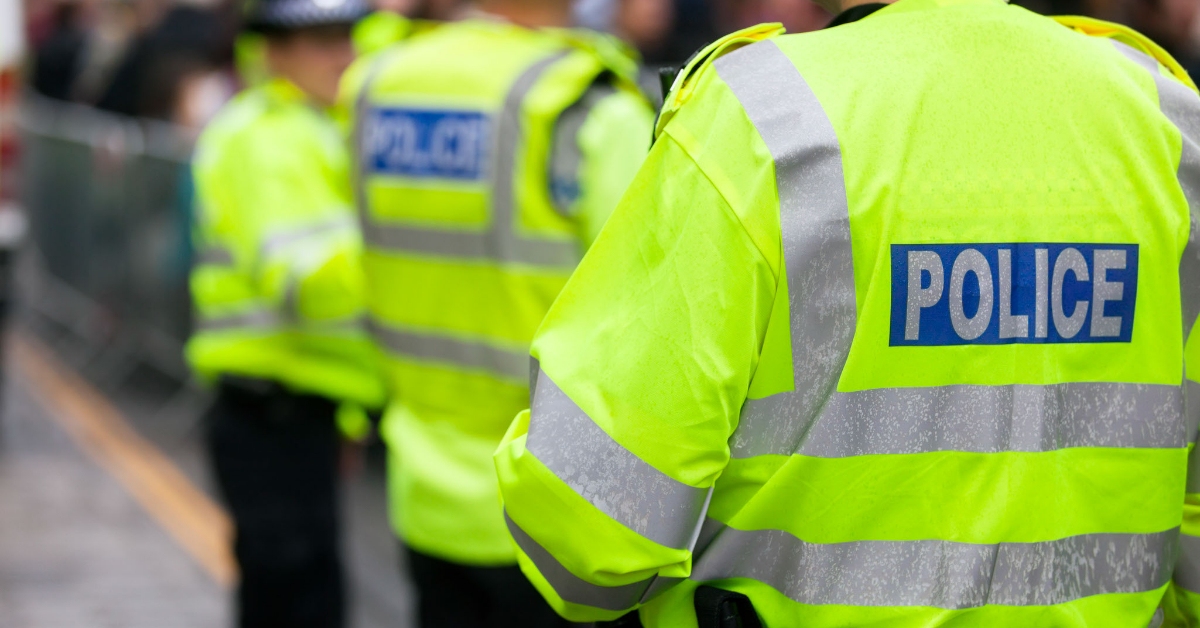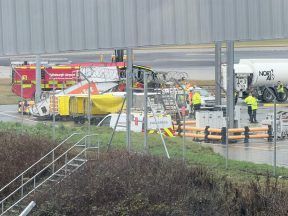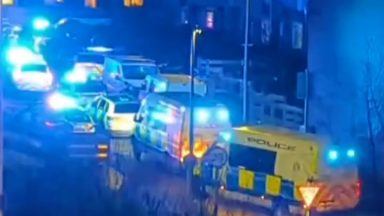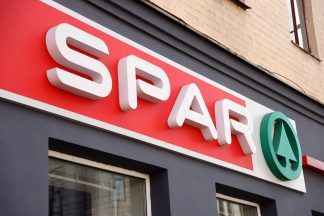At least one Police Scotland officer or staff member is referred for counselling on average every day, official figures have revealed.
It has been revealed that almost 1,000 calls were made to a phone line which helps struggling employees in the force deal with wellbeing matters, money worries and concerns over job stress or bullying and harassment.
Of the 985 calls made to the helpline last year to November, 610 people took part in a mental health assessment, with 387 being referred for counselling.
The figures were published in the justice and social affairs publication, 1919 Magazine.
The Scottish Police Federation (SPF) has warned these numbers were just the tip of the iceberg.
The figures emerged as Holyrood’s criminal justice committee demands answers over the force’s policies and procedures when dealing with employees experiencing mental ill-health.
Deputy chief officer David Page said Police Scotland recognised that the “significant demands placed on both police officers and staff are ever increasing, which in turn increases the stresses and strain they are under in terms of their own health and wellbeing and in particular their mental health”.
In a letter in response to the committee, he outlined a range of services on offer to officers and staff, including the helpline – called the HELP Employee Assistance Programme – which he described as the “primary means of support for officers to self-refer to for advice and support with stressors”.
He wrote: “The 24/7 programme offers professional support and guidance via a team of trained wellbeing and counselling practitioners who offer confidential, independent and unbiased information and guidance.”
Last year, the magazine revealed almost 77,000 working days were lost as a result of “psychological disorders” in 2021/22 – a 22% jump from 62,783 in a five-year period and brings the total number of mental health absences since 2017/18 to more than 350,000.
The chair of the SPF, David Hamilton, described it as a “crisis”.
He said: “Police Scotland’s own figures are really bad, but the true figures are even worse.
“In addition to these cases, many officers are having to seek counselling options through the NHS, by self-funding or through charities such as Police Care UK.
“The nature and experiences of policing make officers particularly vulnerable to mental ill-health and it is no exaggeration to say that this is a crisis.”
Justice committee convener Audrey Nicoll wrote to both Police Scotland and the Scottish Police Authority in October requesting an urgent review of several procedures following private evidence sessions with six officers.
She has now asked for further clarification on a number of points, including the helpline, after stating the Police Scotland response did not address all of the committee’s specific requests.
She said: “Some of the officers raised issues with the adequacy of the employee assistance line, as it is not just for police officers and the operators cannot always provide the required assistance.
“One of the officers told the committee that he called the employee assistance line when in crisis and was told to ‘phone back later’.
“When he called back an hour later, he was told ‘we can’t help you’, as he did not meet their specific criteria. He recommended that a specific helpline for police officers be provided.”
The committee has asked Police Scotland to consider the issues raised and how they can be addressed to ensure everyone is given help when they call.
Overall, Nicoll said that the response provided “did not include an acknowledgement of the experiences described by the police officers who spoke to us informally and which outlined what they considered as shortcomings in the support and advice they received when they experienced mental health issues”.
Scottish conservative justice spokesperson Jamie Greene said the counselling referral figures were “deeply concerning”.
He told 1919 magazine: “They point to hardworking officers and other Police Scotland staff being completely overwhelmed and struggling to cope.
“While it is welcome that this counselling support is in place for those who require it, this should not be the reality for those working within Police Scotland.”
Scottish Labour justice spokesperson Pauline McNeill added: “Policing in Scotland is under a huge amount of pressure and these worrying figures show it is taking a toll on officers.
“Looming budget cuts risk making a bad situation even worse.”
Deputy chief constable Fiona Taylor said: “Policing is a relentless but rewarding vocation which places significant demand on physical, emotional and mental wellbeing.
“Our people are highly motivated by public service and they work tirelessly to improve the lives of people and communities in Scotland every day, against a backdrop of increasing demand.
“The safety and wellbeing of officers and staff – and their families – is a priority for Police Scotland and we have a range of mechanisms to support our people across their psychological, physical, financial and social wellbeing.
“This includes a 24/7 employee assistance programme, a network of wellbeing champions, post-trauma risk assessment and we are a key partner within Lifelines Scotland, a wellbeing resource tailored to our blue light emergency responders.
“We have a duty and an opportunity to build and maintain a service and culture founded on our values to improve the experiences of our people. Police Scotland is determined to continue to drive improvements to support our people and provide them with the tools they need to do their job.”
Follow STV News on WhatsApp
Scan the QR code on your mobile device for all the latest news from around the country


 iStock
iStock
























